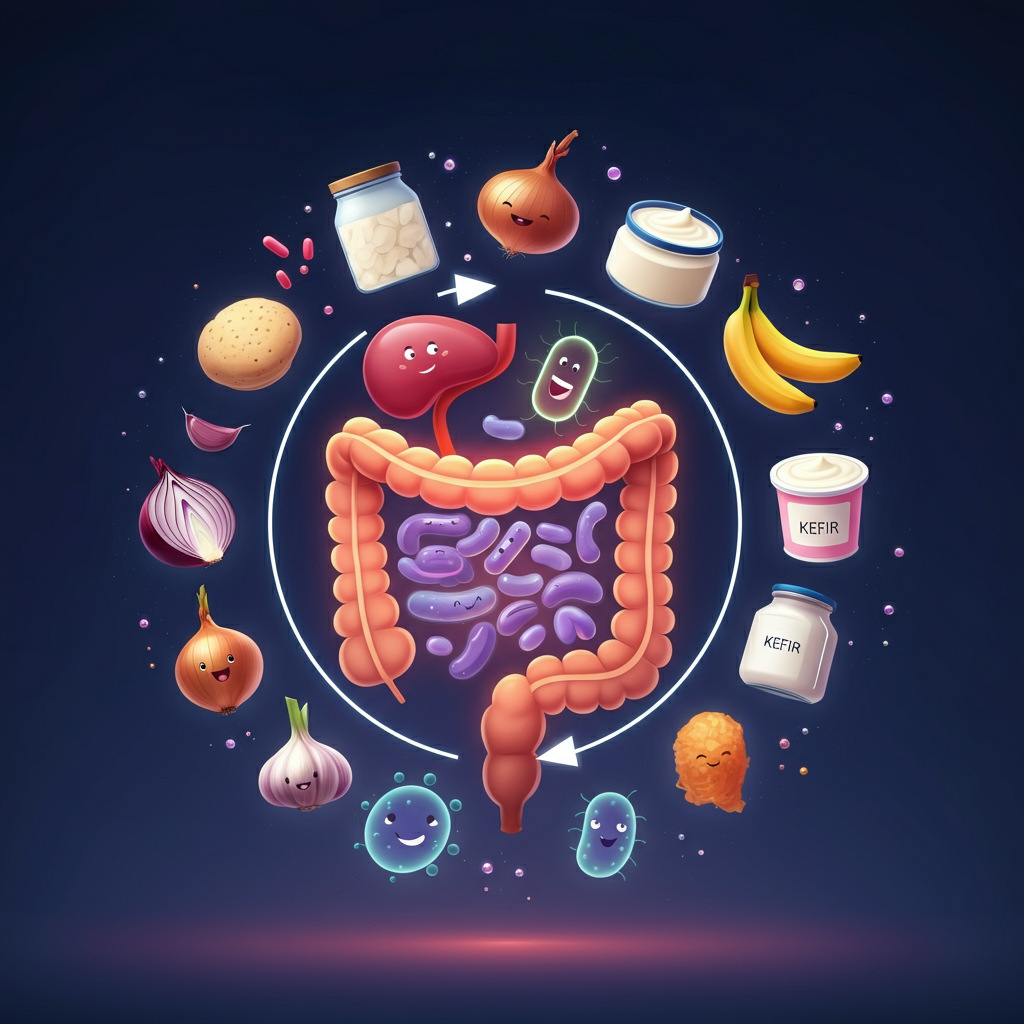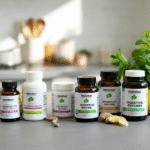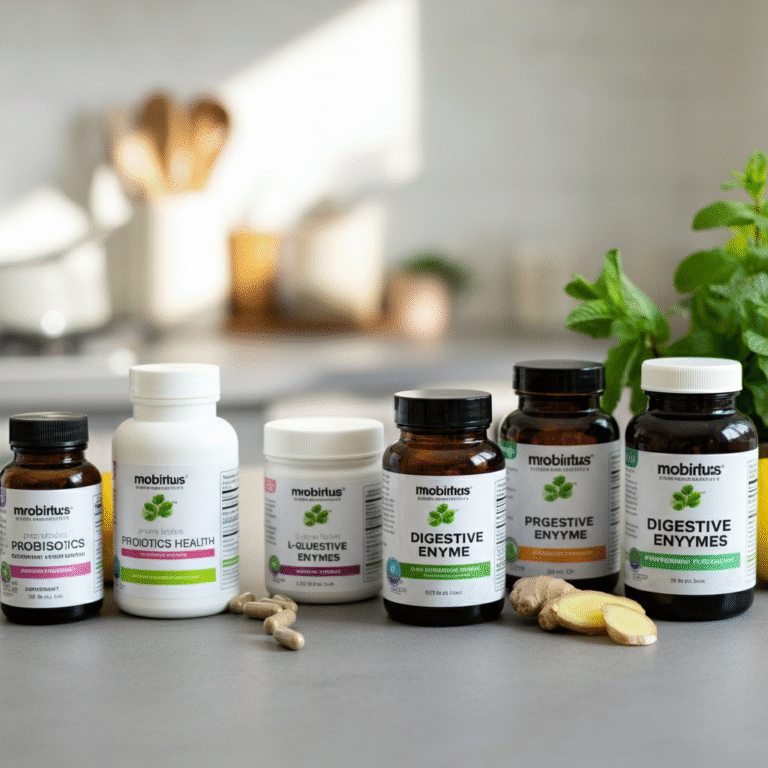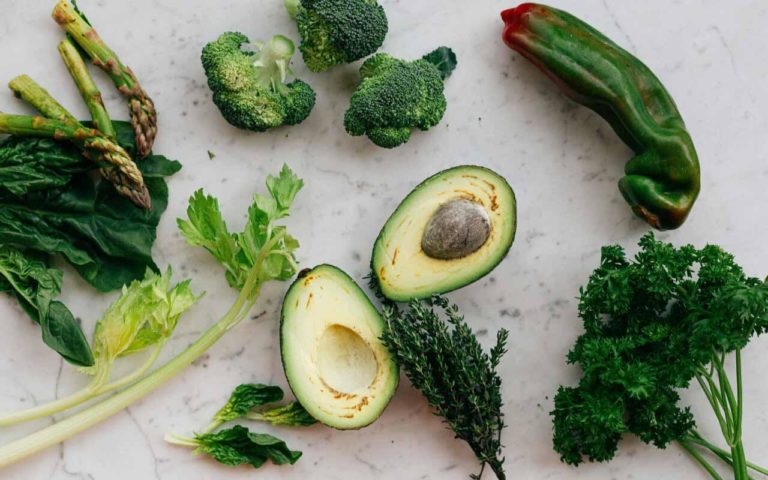When it comes to health and wellness, one rising star keeps stealing the spotlight – your gut. Often referred to as the "second brain," your gut health plays a pivotal role in overall well-being, influencing everything from digestion and immunity to mental clarity and mood. Within the gut health conversation, two key players consistently emerge as heroes – prebiotics and probiotics. But what exactly are they, how do they differ, and why are they so important? This blog dives into everything you need to know about prebiotics and probiotics, their benefits, food sources, and tips for including them in your diet to give your gut the love it deserves. What Are Prebiotics and Probiotics? Before we dig into the details, it’s crucial to understand the distinction between these two gut health powerhouses. Prebiotics are non-digestible fibers and compounds found in certain foods that serve as fuel for the good bacteria already living in your gut. Think of prebiotics as the "fertilizer" that nurtures your gut's beneficial bacteria. Probiotics, on the other hand, are live microorganisms (often called "good bacteria") that you can consume through specific foods and supplements. When they reach your gut, they offer a helping hand by replenishing and balancing the microbiome. While prebiotics and probiotics are different, they work in synergy, promoting a healthy and thriving gut ecosystem. The Benefits of Prebiotics Prebiotics may not get the same buzz as probiotics, but their importance can’t be overstated. Here’s why they’re essential for your health. 1. Improved Digestion …
When it comes to health and wellness, one rising star keeps stealing the spotlight – your gut. Often referred to as the “second brain,” your gut health plays a pivotal role in overall well-being, influencing everything from digestion and immunity to mental clarity and mood. Within the gut health conversation, two key players consistently emerge as heroes – prebiotics and probiotics.
But what exactly are they, how do they differ, and why are they so important? This blog dives into everything you need to know about prebiotics and probiotics, their benefits, food sources, and tips for including them in your diet to give your gut the love it deserves.
What Are Prebiotics and Probiotics?
Before we dig into the details, it’s crucial to understand the distinction between these two gut health powerhouses.
- Prebiotics are non-digestible fibers and compounds found in certain foods that serve as fuel for the good bacteria already living in your gut. Think of prebiotics as the “fertilizer” that nurtures your gut’s beneficial bacteria.
- Probiotics, on the other hand, are live microorganisms (often called “good bacteria”) that you can consume through specific foods and supplements. When they reach your gut, they offer a helping hand by replenishing and balancing the microbiome.
While prebiotics and probiotics are different, they work in synergy, promoting a healthy and thriving gut ecosystem.
The Benefits of Prebiotics
Prebiotics may not get the same buzz as probiotics, but their importance can’t be overstated. Here’s why they’re essential for your health.
1. Improved Digestion
Since prebiotics fuel good gut bacteria, they help break down food more effectively, promoting smoother digestion. The result? Less bloating, constipation, and discomfort.
2. Enhanced Immune Function
Did you know that almost 70% of your immune system resides in your gut? When prebiotics feed beneficial bacteria, they strengthen the gut barrier, preventing harmful pathogens from entering your body and boosting overall immunity.
3. Better Gut Microbiome Diversity
Prebiotics encourage the growth of a diverse range of beneficial bacteria, leading to a healthier, more balanced gut. An unhealthy gut microbiome has been linked to chronic conditions like obesity and diabetes, so diversity is key.
The Benefits of Probiotics
Probiotics have a well-earned reputation as game-changers in the world of gut health. Here’s how they can supercharge your well-being.
1. Reduced Bloating and Discomfort
Probiotics help break down food and produce enzymes necessary for digestion, which can reduce gas and bloating. They’re particularly helpful for those who suffer from IBS (Irritable Bowel Syndrome).
2. Better Nutrient Absorption
A well-balanced gut microbiome can absorb more vitamins, minerals, and nutrients from food. Probiotics improve the efficiency of this process, ensuring your body gets the fuel it needs.
3. Mood and Mental Health Support
Emerging studies reveal a strong gut-brain connection. Some probiotic strains, such as Lactobacillus and Bifidobacterium, have been shown to reduce symptoms of anxiety and depression by influencing neurotransmitters like serotonin.
Food Sources of Prebiotics
Looking to boost your prebiotic intake naturally? These common foods are packed with the nutrients your gut bacteria crave.
- Garlic – A tasty prebiotic powerhouse that supports the growth of beneficial bifidobacteria.
- Onions – Rich in inulin, a type of prebiotic fiber that helps balance gut bacteria.
- Bananas – Particularly greener bananas, which contain resistant starch beneficial for gut health.
- Asparagus – High in fructooligosaccharides (FOS), making it a great prebiotic food.
- Chicory Root – A lesser-known ingredient that delivers a high dose of inulin.
Food Sources of Probiotics
Probiotics can be found in delicious and familiar foods. Add these to your diet to replenish your gut microbiome.
- Yogurt – One of the most well-known sources of probiotics. Opt for varieties with live and active cultures.
- Kefir – A fermented milk drink bursting with diverse probiotic strains.
- Sauerkraut – This tangy, fermented cabbage is loaded with live bacteria. Ensure it’s unpasteurized for the probiotic benefits.
- Kimchi – A spicy Korean favorite, packed with probiotics and antioxidants.
- Miso – A versatile, fermented soybean paste rich in good bacteria.
The Role of Supplements in Supporting Gut Health
While getting prebiotics and probiotics from food is ideal, supplements can provide extra support, especially for those with dietary restrictions or specific health goals.
- Probiotic Supplements – These come in a variety of strains tailored to specific health needs (e.g., improving digestion, boosting immunity, or balancing mood).
- Prebiotic Supplements – Ideal for those struggling to include enough fiber-rich foods in their diet.
When choosing a supplement, look for reputable brands that list strains, CFUs (colony-forming units), and expiration dates.
How to Add Prebiotics and Probiotics to Your Diet
It’s easier than you might think to incorporate more prebiotics and probiotics into your meals.
- Start Your Day Right: Add bananas to your smoothie for a prebiotic boost or have a bowl of yogurt topped with fruit and honey for probiotics.
- Experiment with Fermented Foods: Try sauerkraut or kimchi as a side dish at lunch or dinner.
- Soups and Stews: Add prebiotic-rich onions, garlic, and leeks to soups for a delicious and gut-friendly boost.
- Go International: Explore cuisines that feature fermented dishes, like Korean kimchi, Japanese miso, or German sauerkraut.
- Choose High-Quality Supplements: If dietary sources aren’t enough, a well-chosen supplement can fill the gap.
Potential Side Effects and Precautions
Before you fully immerse yourself in the world of prebiotics and probiotics, it’s worth noting that they may not be suitable for everyone.
- Temporary Digestive Upset – If you’re new to prebiotics or probiotics, you might experience mild bloating or gas as your gut adjusts.
- Allergies or Intolerances – Some individuals may react to specific probiotic strains or prebiotic foods.
- Immunocompromised Individuals – If you have a weakened immune system, consult a healthcare professional before taking probiotics.
Starting slow and gradually increasing your intake can help minimize side effects.
Supporting Gut Health with Prebiotics and Probiotics
The relationship between prebiotics and probiotics is wonderfully synergistic. Prebiotics feed the beneficial bacteria introduced by probiotics, creating an ideal environment for your gut microbiome to thrive. By incorporating both into your diet, you’ll give your body the tools it needs to support digestion, boost immunity, and elevate overall health.
Take charge of your gut health today by making small, sustainable changes to your diet. Whether it’s enjoying a probiotic-rich yogurt or adding garlic to your recipes for its prebiotic benefits, every step counts.
For optimal results, always listen to your body and consult with a healthcare professional when in doubt. Why not give your gut a little extra care starting now?
Sign up for free class
It’s easy and free!









